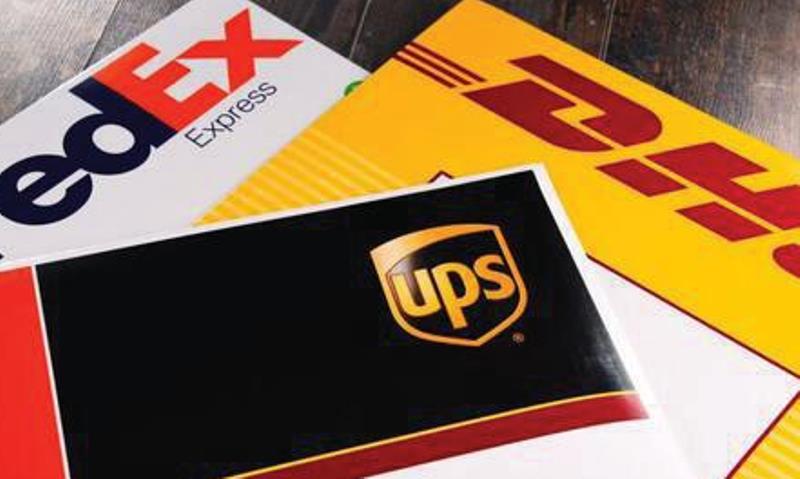India’s booming courier and parcel delivery market — a sector powering the e-commerce revolution — has found itself at the centre of an antitrust storm.
Allegations of price collusion among global courier majors such as UPS, FedEx, DHL, and Aramex have reignited debate around competition practices in India’s logistics ecosystem, raising key questions about regulatory transparency, market behaviour, and the balance between oversight and overreach.
The Spark Behind the Controversy
The issue traces back to a complaint filed by a publishers’ association representing Indian and international publishing houses. The association alleged that several courier companies were colluding to maintain high service prices for the shipment of books and printed material — an act that would violate India’s competition laws and distort a fair market environment.
Following a detailed three-year investigation, the Director General (DG) of the Competition Commission of India (CCI) found no evidence of price collusion among the firms and cleared them of the allegations. Ordinarily, this would have put the case to rest. But the complainant wasn’t satisfied.
A Legal Twist: The Cross-Examination Dispute
In a rare move earlier this year, the CCI allowed the complainant to directly cross-examine executives of the courier companies. This decision, almost unprecedented in Indian antitrust proceedings, opened a new chapter in the dispute — one that has since reached the courts.
UPS India challenged the CCI’s order before the Delhi High Court, arguing that the permission to cross-examine lacked sufficient reasoning and risked turning the investigation into what it termed a “fishing and roving expedition.” The firm maintained that the DG’s findings were already conclusive and that further cross-questioning could undermine procedural integrity.
The case is now pending before the court, with its outcome likely to shape how future competition investigations in India handle similar requests.
Understanding Price Collusion
Price collusion occurs when competing companies coordinate — either explicitly or tacitly — to control or influence pricing decisions. This may include:
- Agreeing on minimum or fixed prices
- Dividing customers or regions among themselves
- Sharing commercially sensitive data to anticipate rivals’ moves
Such practices erode healthy competition, inflate prices, and reduce choices for consumers and smaller businesses. Globally, price-fixing has been a recurring concern in concentrated industries like logistics, aviation, and shipping — sectors where limited players dominate large market segments.
Why the Courier Sector Matters
India’s courier and parcel industry is projected to grow at around 11% annually, reaching a market value of nearly USD 14.3 billion by 2030. Driven by the expansion of e-commerce, D2C brands, and small business exports, the segment has become an indispensable link in India’s consumption-led growth story.
With speed, reliability, and cost efficiency as its primary value propositions, pricing competitiveness plays a crucial role. Even the perception of collusive behavior can have ripple effects across contracts, margins, and customer trust.
As the market attracts both global and domestic players, fair competition ensures that innovation and service quality — not coordinated pricing — define success.
The Larger Implications
While the DG’s findings initially exonerated the courier majors, the CCI’s decision to allow cross-examination has introduced uncertainty. If the court upholds the move, it could set a new procedural precedent in how India’s competition watchdog conducts hearings — potentially inviting more such interventions from complainants in future cases.
For the logistics industry, this development has wider ramifications:
- Compliance Pressure: Companies will need stronger internal mechanisms to ensure transparent pricing and communication practices.
- Operational Risk: Ongoing investigations or procedural delays can affect pricing strategies, client confidence, and service continuity.
- Market Perception: The debate itself may influence how stakeholders — from regulators to shippers — view pricing integrity within the sector.
Unanswered Questions
Even as the legal process unfolds, several questions remain open:
- What specific data led the DG to find “no evidence” of collusion?
- On what grounds did the CCI decide to permit cross-examination post-clearance?
- Could this case reopen the broader debate on regulatory limits and procedural rights under Indian competition law?
- How will this shape pricing strategies among multinational and domestic logistics players operating in India?
The Road Ahead
As India’s logistics landscape matures, balancing competitiveness with compliance will become increasingly vital. The ongoing case may appear procedural on the surface, but its implications extend deep into how global firms navigate India’s regulatory ecosystem.
For an industry that thrives on speed, efficiency, and trust, the question now is not just whether price collusion existed — but how India’s regulators, courts, and logistics leaders will shape the rules of fair play going forward.

